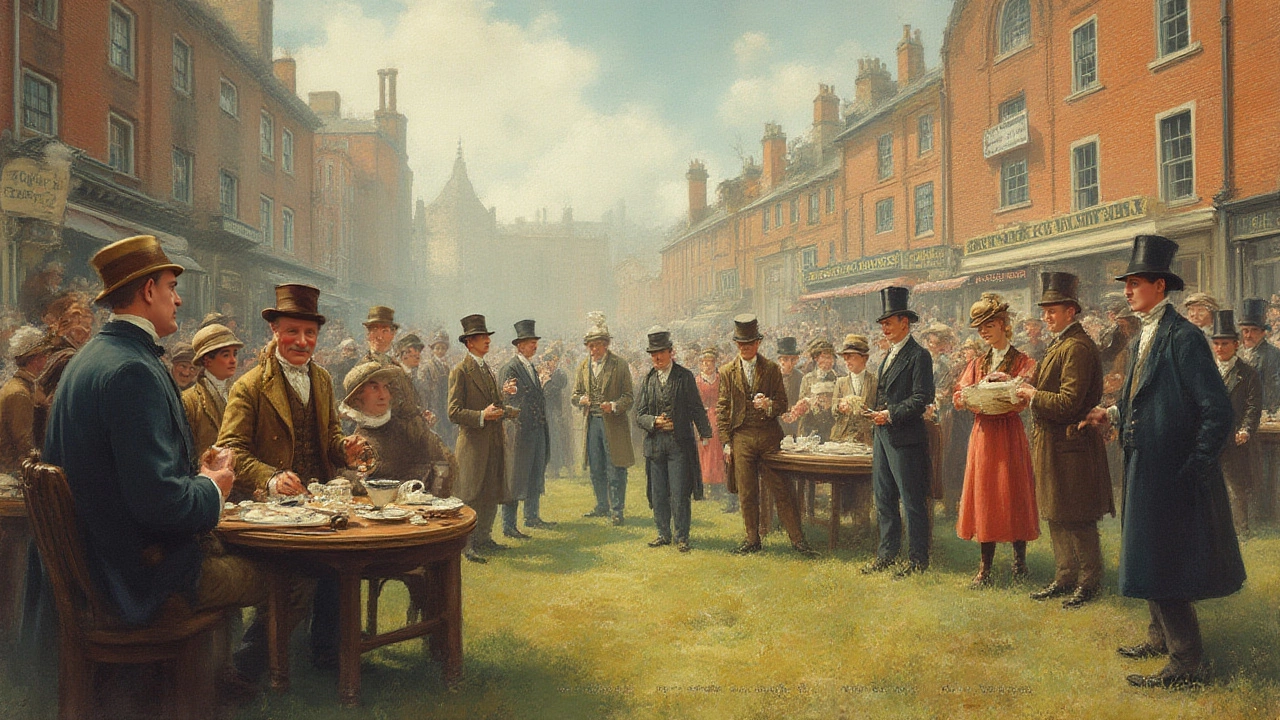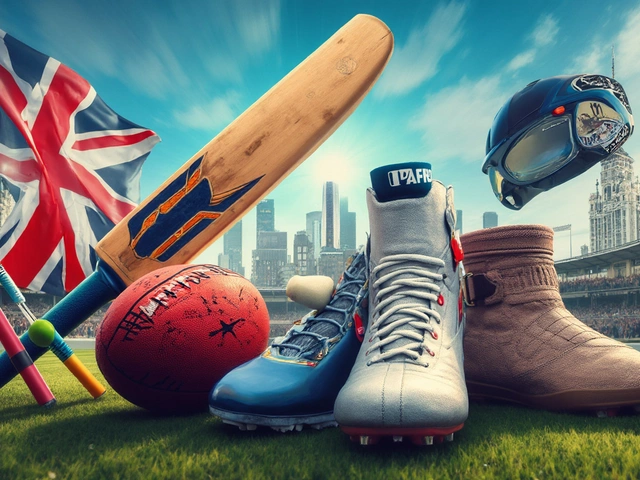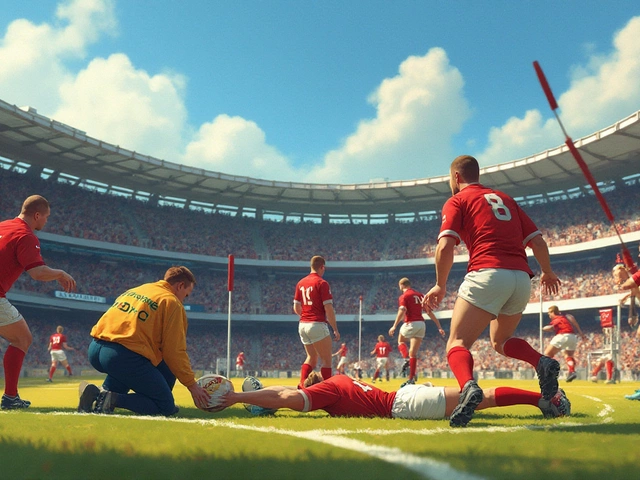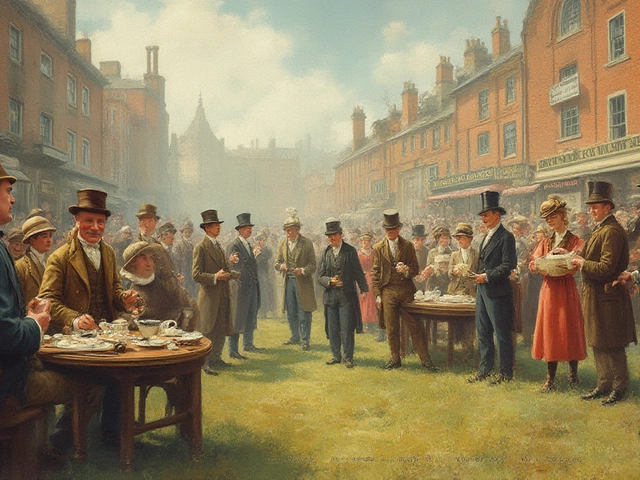When an American says "soccer," the rest of the world raises its collective eyebrow. If you grew up outside the US, hearing the word probably feels a bit odd—like seeing upside-down Christmas trees or eating pineapple on pizza. But here's the kicker: the word “soccer” actually has British roots. Myth-busting time: Americans didn’t invent it just to be difficult.
The British Birth of the Word 'Soccer'
Back in the late 1800s, Britain was crazy for a bunch of sports ending in "-ball." There was “rugby football,” played by those who liked getting muddy and a bit bloody, and “association football,” which was more about passing the ball with your feet. Both these games shared the same ancestor, but they started to look different pretty quickly.
People needed a way to tell them apart. In true British fashion, students at Oxford started slang-ifying things. They chopped “association football” down to “Assoc.”, and then gave it a playful twist: “Assoc.” turned into “soccer.” Don’t picture posh folks in top hats, either—think more Marlon Brando in an Oxford jumper, slyly dropping nicknames. If you played rugby football, you were a “rugger.” Played association football? You played “soccer.”
This wasn’t just some fringe Oxford thing. The nickname caught on and, for decades, “soccer” was said all over England. Newspapers used it, kids threw it around the playground, and nobody seemed to mind. Here’s a wild fact: from the 1890s right up until the 1980s, “soccer” appeared in headlines across the UK.
Take a look at how often the word popped up in both the UK and the US in print:
| Decade | "Soccer" UK Mentions | "Soccer" US Mentions |
|---|---|---|
| 1900s | High | Low |
| 1950s | Moderate | Rising |
| 1980s | Dropping | High |
| 2020s | Rare | Very High |
So, “soccer” is as British as Earl Grey tea, and nobody in the UK blinked twice at its use for ages. The real twist? It stopped being cool in Britain, just as America really started to like it.
Why Did Americans Keep “Soccer” While The Brits Dropped It?
Here’s where things get a bit wonky. In the States, “football” was already spoken for. The American version, where guys in shoulder pads score touchdowns, had totally claimed that title. So, when folks over there needed a unique name for association football, “soccer” just made sense. Easy. No confusion in the stands or on TV. Plus, “soccer” had an energetic, snappy ring, so it stuck like Vegemite on toast.
But back in Britain, attitudes shifted. In the 1970s and 80s, “soccer” started to sound less proper, less authentic. Some thought it was too Yank. So locals just went with “football” again, as if nothing had happened. Today, if you say “soccer” in London, expect a dramatic sigh or maybe even a pint glass rolling its eyes at you.
Meanwhile, in the US, “soccer” felt friendly, approachable, and different to their own homegrown games. By 1974, experts say only about 100,000 Americans played the sport, but by 1987 that shot up to 2 million kids in youth leagues. “Soccer” became part of Saturday suburb routines, leagues, and coffee shop chatter—cementing it in US vocabulary, even as it faded out in England.
Curious to see when Brits flipped? One study checked newspaper use: by the 2000s, use of “soccer” had dropped 90% in UK papers from its mid-century high. But in America, it never looked back. Once the US organized major international tournaments like the 1994 World Cup and set up Major League Soccer in 1996, the word “soccer” was locked in with superglue.

Soccer vs Football—Why the Name Still Gets Under People’s Skin
Some people just can’t let the debate go. Type “soccer vs football” into a search bar and you’ll see furious internet fights, memes, and even a few comedians getting involved. For many outside the US, it’s not just a language thing—it feels like identity. “Football” has deep traditions, roaring pub crowds, and a kind of working-class pride built into the name, especially in the UK, Europe, and South America.
So for some, when an American says “soccer,” it feels like calling a meat pie a “minced dough thing.” Or replacing the Queen with a talking kangaroo. But change happens. In Australia, we played “soccer” for decades, too! It only officially became “football” in 2005 because our own version of “football”—Australian Rules—got confusing at dinner tables.
Language, after all, is about being clear. Want to chat about football in Spain or Italy? You’d better use “fútbol” or “calcio” or risk puzzled looks. Say “soccer” in Tokyo and you’ll still score points with locals—Japan’s pro league uses the word to connect with international fans.
- If you travel, notice what locals call the sport—adopt their word to spark smiles.
- Check what your guidebooks say—"soccer" is a linguistic chameleon, adapting to fit in almost anywhere.
- Understand where the name comes from—no need for eye rolls, just share a laugh and enjoy the game.
Sometimes, the whole thing boils down to what you’re used to and who you’re sharing the pitch with. Kids from Brazil to Sweden refer to “football” or “futebol,” while young Americans and Aussies used “soccer” for decades. You could call it “kickball,” and as long as you know where to aim and not use your hands, you’re set.
Interesting Soccer Facts and Figures
The word might cause arguments, but the sport itself keeps winning hearts. Take the 2022 FIFA World Cup: around 1.5 billion tuned in for the final. That’s like half the planet leaning closer to their screens, no matter what they called it. Meanwhile, in the US, soccer is growing like crazy—Major League Soccer doubled its teams since 2005, filling stadiums coast to coast.
- Globally, FIFA’s 2023 report shows over 250 million people kick a soccer ball regularly.
- Women’s soccer is booming—over 1.1 billion people watched the Women's World Cup final in 2019.
- In the US, kids aged 5-14 made up the fastest-growing group of soccer players in 2023, as reported by the US Youth Soccer Association.
Wondering which city first embraced “soccer” in America? New York and St. Louis led the charge, fielding teams in the early 1900s as waves of immigrants brought their games and their words. As for tips: next time you’re at a trivia night, remember the original nickname “soccer” was Oxford’s cheeky shortcut for “association football.” Drop that fact and watch jaws drop—be the MVP of team pub quizzes.
Here’s a quick table—it highlights when various countries use "soccer" or "football":
| Country | Preferred Term |
|---|---|
| USA | Soccer |
| United Kingdom | Football |
| Australia | Football (since 2005), previously Soccer |
| Japan | Soccer / Sakkā (サッカー) |
| Canada | Soccer |
The real lesson? Language loves a plot twist. “Soccer” started out as cool British slang, ping-ponged across the Atlantic, vanished in its homeland, but stuck around across the sea. What seems quirky now was once simply normal. And these days, it’s just another talking point for fans to bond over—maybe over a pie (or, you know, a “minced dough thing”).
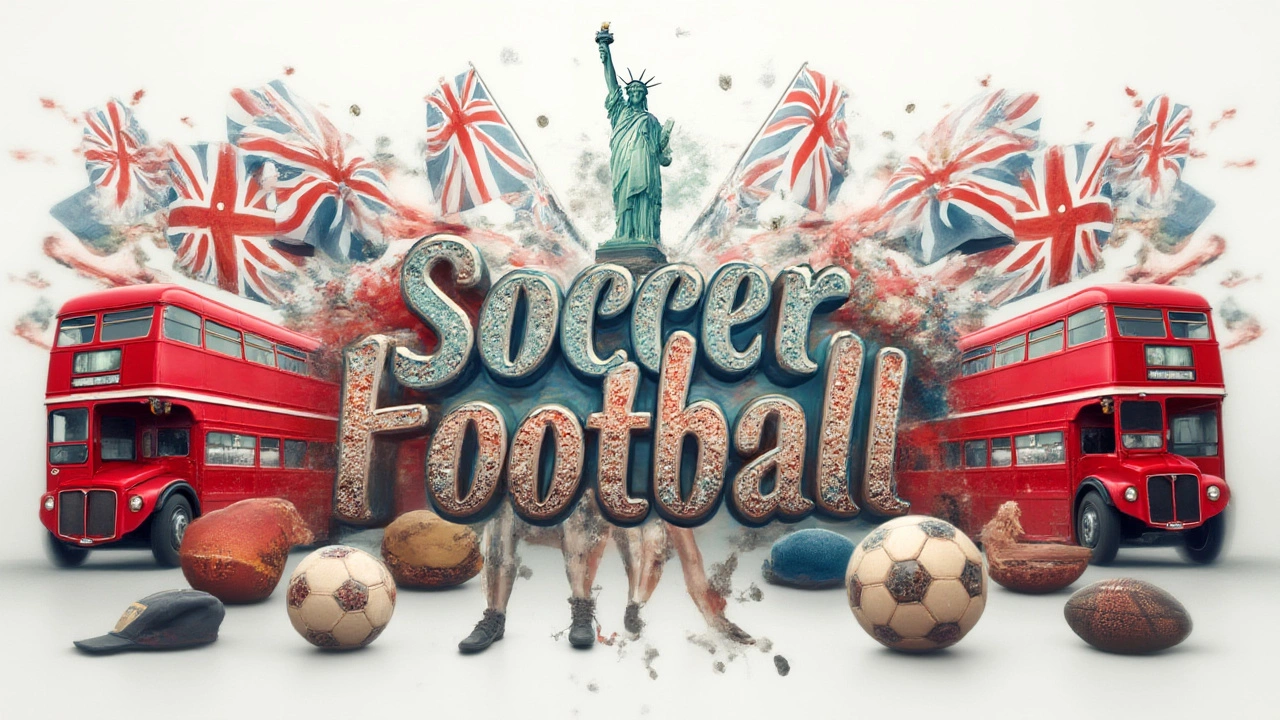
Making Peace With Soccer (Or Football… Or Whatever You Like)
You’ll find diehards on both sides of the naming debate, but at the end of the day, it doesn’t affect the roar of the crowd or the dazzling curve of a free kick. Language evolves for loads of reasons—practicality, culture clashes, or just the fun of saying something differently from your mate across the street. Americans say “soccer” out of pure necessity—football already had its own thing in their backyard. Meanwhile, Australians and Canadians stuck with “soccer” due to their own football codes, switching only when things got too muddled at barbecues.
Curious travelers, armchair experts, or late-night sports trivia champs: now you’ve got the scoop. Next time you hear “soccer,” remember it’s not a weird American invention, but a clever British shortcut that crossed an ocean and found a new home. And if anyone tries to tell you otherwise, just remind them how language loves to shake things up. As long as the ball’s rolling, the name’s not the main thing—enjoy the game, whatever you call it.
